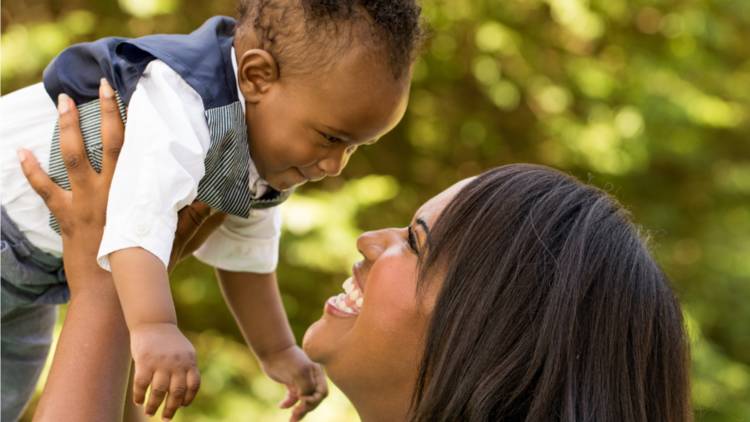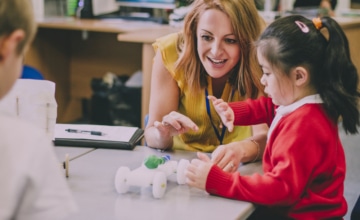The rapid brain development in the critical first three years of life lays the foundation for future health, learning, and behavior. Parents and caregivers must have supports to ensure this healthy development in their babies and toddlers. This research tested messages and policies about the importance of supporting the emotional development of young children ages zero to three with voters—important decision-makers in the advancement of early childhood policies.
The Issue

Fifty percent of survey respondents reported knowing little-to-nothing about the brain development of babies and children under 3.
To better understand awareness of and attitudes toward emotional development in young children and infants, ZERO TO THREE and the Robert Wood Johnson Foundation commissioned a national survey of voters, including parents of young children, to explore awareness of the topic, parents’ attitudes and behaviors, and perspectives on policy ideas to support the healthy development of infants and toddlers.
Key Findings
- Nine in 10 voters believe brain development in babies and toddlers is an important topic, and most (85%) believe experiences in the first three years of a child’s life can lead to long-term impacts later in life.
- Most say that parents should have the resources to help them support their child’s healthy brain development, and 73 percent agree that pediatricians should play a major role in helping parents when it comes to the emotional development of their child.
- Among policies tested, all received majority support. However, the top policy for voters across party ID is to “expand access to affordable, quality child care for working families.” Additional supportive policies include more access to child development specialists, more flexible paid leave options for parents, and expanding Early Head Start.
Download the full survey findings to learn more.
Conclusion
Public policies have been slow to catch up with the science of early childhood development, specifically the impact rapid brain development has on the first three years of life. ZERO TO THREE and the Robert Wood Johnson Foundation identified the messages and policies that best resonate with voters, demonstrating opportunities to better support early childhood development. This survey will act as a stepping stone as we continue to ensure every child has a strong start in life and parents and caregivers have the tools and resources necessary for their families’ success.
About the Study
This report includes research findings from a national survey of 1,605 registered voters including an oversample of parents of children ages 0-5, first time parents, millennials, and non-metro voters fielded from May 31 to June 18, 2017. The margin of error for the total results is + 3.3 percentage points. Methodology and survey toplines are also available.
Download the Methods Report to learn more.
Recorded Webinar
The webinar below takes a deeper dive into the survey research and provides an overview of voters’ attitudes toward emotional development in young children and infants.
Social Media Toolkit
Help us spread the word! Cut and paste the posts and graphics in this document to promote and highlight key findings from this report. Be sure to include the #ThinkBabies hashtag and tag ZERO TO THREE on Facebook and Twitter.




